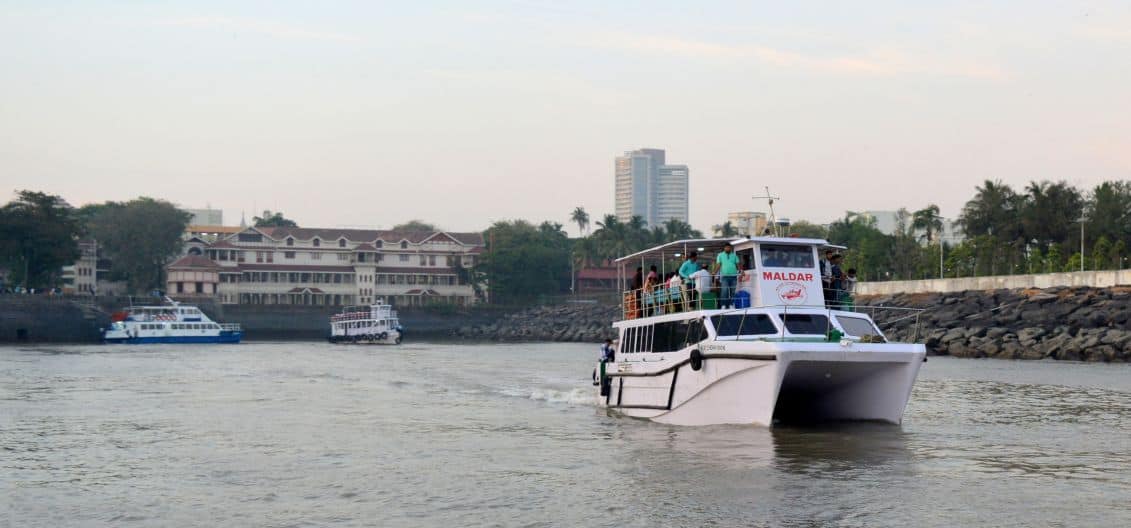 |
|
The tragic collision between an Indian Navy speedboat and a passenger ferry off the Mumbai coast has resulted in a thorough investigation led by the Navy Chief, Admiral Dinesh Kumar Tripathi. The incident, which occurred on Wednesday afternoon, claimed the lives of fourteen individuals, including one sailor. The ferry, 'Neel Kamal,' was carrying over one hundred passengers en route to Elephanta Island, a renowned tourist destination known for its ancient cave system. The impact of the collision caused the ferry to capsize, leading to the devastating loss of life. This incident underscores the critical need for rigorous safety protocols and thorough investigations into such maritime accidents to prevent future tragedies. The subsequent investigation will scrutinize various aspects, including navigational procedures, communication protocols, and the overall operational standards of both the Navy vessel and the ferry. The findings will be crucial in determining the precise causes of the accident and in implementing measures to improve maritime safety.
Admiral Tripathi's prompt response to the tragedy demonstrates the Navy's commitment to accountability and transparency. His visit to the Western Naval Command headquarters and the subsequent aerial inspection of the accident site signal a serious approach to understanding the circumstances that led to the collision. The establishment of a Board of Inquiry further reinforces this commitment. The Board will be tasked with meticulously examining all available evidence, including witness testimonies, navigational data, and technical analyses of the involved vessels. The thoroughness of this investigation is paramount, not only to ascertain responsibility but also to identify systemic vulnerabilities that may have contributed to the accident. The findings of the Board of Inquiry will undoubtedly inform policy changes and safety enhancements to prevent similar incidents from occurring in the future.
The accident highlights the complexities of maritime navigation, particularly in busy waterways like those surrounding Mumbai. The confluence of commercial vessels, passenger ferries, and naval traffic requires a high level of coordination and vigilance. The investigation will likely delve into the adequacy of existing traffic management systems, communication channels, and the training and certification protocols for both Navy personnel and civilian mariners. Any shortcomings identified in these areas will need to be addressed through comprehensive reforms. This event serves as a stark reminder of the importance of robust safety measures in preventing maritime accidents, especially those involving passenger vessels. The loss of life underscores the profound human cost of such incidents and underscores the need for continuous improvement in maritime safety practices. The lessons learned from this tragedy should be incorporated into future training programs and regulations to ensure the safety of passengers and crew across all types of watercraft.
Beyond the immediate aftermath of the accident, the investigation will have lasting implications for the Indian Navy and the country's maritime safety regulations. Public trust in the Navy's operational capabilities and safety protocols is crucial, and a thorough, transparent investigation is essential to maintaining that trust. The findings of the Board of Inquiry will not only provide answers to the questions surrounding the collision but will also shape future maritime policies and procedures. The incident also raises questions about the coordination between naval and civilian maritime authorities in managing traffic in busy waterways. This investigation will likely examine these inter-agency protocols and recommend improvements to enhance safety and prevent future collisions. The lasting impact of this tragedy extends beyond the immediate loss of life and includes the potential for significant changes in maritime safety standards across the country.
Furthermore, the incident serves as a poignant reminder of the inherent risks involved in maritime travel. While accidents are inevitable in any mode of transportation, the need for stringent safety regulations, well-trained personnel, and robust emergency response systems cannot be overstated. The scale of the tragedy calls for a comprehensive review of existing maritime safety standards, not just within the Indian Navy, but also throughout the country's maritime sector. The ultimate goal is to learn from this devastating accident and to ensure that such a loss of life is never repeated. The ongoing investigation and its subsequent findings will be crucial in achieving this vital objective. The comprehensive nature of the inquiry will establish a precedent for future investigations, fostering a culture of accountability and safety within the Indian Navy and the wider maritime community. The memory of those lost serves as a somber but imperative call for change.
Source: Navy chief holds meet on craft-ferry crash during Western Naval Command HQ visit
